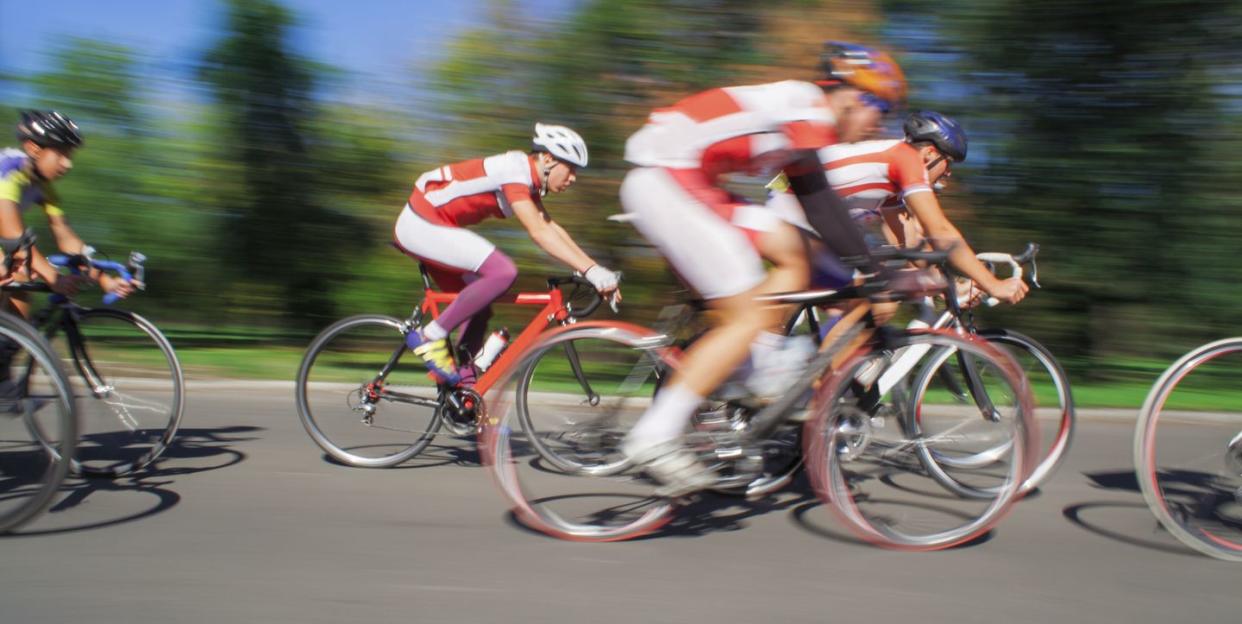Should You Go Keto If You Want to Get Faster?

According to research published out of Saint Louis University, people on a low-carb keto diet had a 7 percent lower peak power output in a high-intensity cycling test than those on a high-carb diet.
Researchers believe the keto diet may impair athletic performance in anaerobic exercise, like sprinting.
The low-carb keto diet is everywhere, and its proponents say that it can do everything from boost your metabolism to help you lose weight to calm your inflammation.
When you cut carbs, you replace those calories with calories from fat. Then, your body turns to fat for fuel, producing a compound called ketones, which are then used as an energy source. You have to really cut your carbs to get to that level though—a keto diet requires you to reduce carbs to less than 5 percent of your daily caloric intake.
But besides being very restrictive, how much can cutting your carbs—the preferred fuel for exercise—affect your cycling performance? Researchers from Saint Louis University decided to find out.
In the study, researchers looked at 16 men and women, average age 23, who underwent a cycling exercise test after being on either a low-carb keto diet or a high-carb diet for four days.
They found that those in the low-carb group had 7 percent lower peak power during anaerobic exercise—the short-exertion, high-intensity stuff that includes sprinting and jumping.
[Build a killer midsection in the kitchen for powerful, effortless miles on the road with Eat for Abs!]
Something called acidosis—a condition that stems from an imbalance in the pH of the blood, creating excess acid in your system—can limit power during this kind of exercise, which could explain the decrease found in the study. One potential cause of acidosis? Keto diets.
That may be because ketones raise that level of acid. Fortunately, the diets don’t cause a big enough spike to go from ketosis—when you have higher levels of ketones—to the life-threatening ketoacidosis, when the body is producing dangerously high level of ketones, a condition considered a complication of diabetes.
But the acid increase of ketosis could have a performance impact.
“Our small study, along with those conducted by others, adds to accumulating evidence that such diets are not good for performance, and may actually be detrimental,” said lead researcher Edward Weiss, M.D., associate professor at the Cardiovascular Research Institute at University of California San Francisco. “Based on existing evidence, it’s inadvisable for athletes and others to follow a low-carb ketogenic diet.”
Although there’s anecdotal evidence that keto helps some people run faster and may improve health markers like cholesterol, Weiss believes these advantages likely come from the weight loss associated with keto eating—and that any similarly restrictive diet would do that same thing.
It’s not as if Weiss is an anti-keto advocate. He’s stated in the past that the keto diet can be incredibly powerful, and offers many metabolic benefits because the body processes the remaining carbs more efficiently—requiring much less insulin.
But one big problem is that few clinical studies have been done in humans beyond looking at seizure prevention. Mouse studies are promising, but it’s unclear whether those results translate to people.
So, although this recent study is limited in scope due to its small sample size, short timeframe, and thinly sliced demographic, at least it’s a start in looking at keto diets in humans, and especially among athletes.
Plus, it supports the findings of another recent study, this one published in the Journal of the American College of Sports Medicine and done using a treadmill test rather than a cycling one. In this study—which also had a small sample size—researchers found that a keto diet led to a decrease in exercise efficiency during high-intensity runs, along with a 5 percent drop in speed. The keto diet didn’t seem to hamper moderate intensity exercise, though.
And that falls in line with how our bodies think of carbs as the premium fuel for exercise.
“When exercise intensity is high and our oxygen availability is limited, our body naturally switches to carbs for fuel,” he said.
This is because with carbs, our body produces ATP—the energy source that drives muscle contraction and other physiologic processes—more rapidly than it does from fat and protein.
“Carbs allow us to run, cycle, and sprint better than we can with other fuels like fat and protein,” Weiss said.
What’s the takeaway? Maybe that if you want to get faster and go after major PRs, eating the keto way could be a bust. But if you’re all about maintaining your fitness through moderate-intensity exercise, or you notice an issue with carbs during exercise, the diet may still be an option.
You Might Also Like

